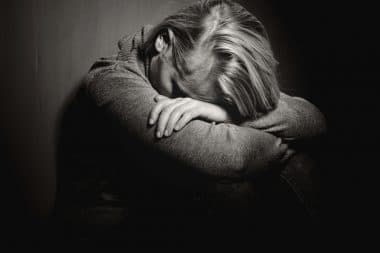According to the recent study , 4.4 percents of Americans have been diagnosed with bipolar disorder at some point in their lives. Most of them (83 percents) have a severe version of the disease. Many people are not diagnosed properly and only about half of them are receiving treatment. Another interesting finding of the study is that world average is 2.4 percents. It is not clear why Americans have so many more cases of bipolar disorder then other nations. What is clear is that people suffering from this lifelong debilitating disease need help with early diagnosis and treatment, especially since the first signs of the disease often show up in childhood.
What is bipolar disease?
Sometimes called manic-depressive disorder, bipolar disease manifests itself with dramatic mood shifts and rapid changes in levels of activity and energy. These shifts are much more drastic than normal mood changes we all experience occasionally. Their severity seriously affects person’s ability to lead normal life, work and socialize. Economically, bipolar disorder has more effect on person’s productivity than all types of cancer, epilepsy or Alzheimer”s. According to the World Health Organization, bipolar disorder, with its high mortality and disability, accounts for more than 14 million years of lost healthy life , almost as much as schizophrenia.
Bipolar disorder is a brain disorder and it often develops in very early adulthood or even late teens. The symptoms make it very difficult to diagnose, because they shift between depression and manic episodes, appearing like completely different diseases. The severity of symptoms makes people with bipolar disorder very difficult to live or work with. They affect person”s ability to perform in school or at work and often result in suicide. According to the study conducted by researchers from the Department of Psychiatry and Behavioral Sciences, Johns Hopkins University School of Medicine, at least 25 to 50 percents of patients with bipolar disease attempt suicide at least one time.
Like other chronic conditions, bipolar disorder stays with a person for the duration of his or her life, and has to be managed with medication and therapy in order to allow normal living.
Risk factors for bipolar disorder
It is general agreement among scientists that many factors work together to increase our risk for developing bipolar disease or to develop the disease at some point in our lives.
Bipolar disorder often runs in families, and children with a sibling or parent with bipolar disorder have four to six times more chance of developing the disease, in comparison with children without such family history. But, studies show that there is more than one gene involved and most children with a high risk for bipolar disease due to their family history do not develop the disease.
While not quite sure what causes bipolar disease, scientists now know that genes are not the sole risk factor for this disorder. Some people develop bipolar disorder late in life, so the cause for them evidently stems from other reasons.
Some studies found the link between increased paternal age and higher risk for bipolar disorder. Family history of other psychiatric disorders such as ADHD, schizophrenia, anxiety and major depression also increases risk of a person developing bipolar disease.
Children and bipolar disorder
When young children develop this disorder, its symptoms are often more severe than in adults. Also, their symptoms appear more often and their moods shifts are more frequent than in adults.
It is very difficult for parents to acknowledge that their child’s behavior is not just normal moodiness but a more serious disease. If your child goes through episodes of depression and manic activity and sometimes both at the same time, it is urgent to consult a physician. Usually, such episodes last a week or so, and then symptoms disappear. Unfortunately, they will come back.
To recognize manic episode, look for:
- Intense bouts of happiness or silliness;
- Frequent attacks of short temper
- Very fast talk about many different things
- Trouble sleeping
- Never feeling tired
- Trouble focusing
- Inappropriate and frequent talk about sex
- Risky behavior
Depressive episodes look very different :
- Deep sadness
- Constant complaining about various pains
- Too much or too little sleep
- Sense of worthlessness and guilt
- Too much or too little appetite
- No interest in any activities
- Very little energy
- Talking and thinking about suicide and death or suicide
Is there help?
Bipolar disorder lasts a lifetime in most cases. While people go through symptom-free periods, episodes of depression and mania come back.
If not diagnosed and treated, bipolar disorder often gets much worse. Episodes become more severe and frequent. The delays in getting diagnosed and treated make a person suffer more from the inability to lead normal personal and social life and perform at work or in school.
In addition, scientists found that people with bipolar disorder frequently suffer from anxiety, post-traumatic stress disorder, social phobia, ADHD, and a range of physical diseases such as thyroid disease, migraines, heart disease, obesity, diabetes, obesity, and others.
While there is currently no cure for bipolar disorder, the disease can be managed and treated through control of symptoms. It is a lifelong commitment, but the results are in most cases encouraging. Treatment includes combination of medication and psychotherapy which have a goal of preventing the return of symptoms and reducing the intensity of episodes,
Both children and adults are mostly treated with mood stabilizers such as lithium and alternatives such as valproic acid. Both have potential side effects. Lithium may affect thyroid gland and valproic acid may increase levels of testosterone in girls.
Antidepressants are often prescribed together with mood stabilizers. Depending on symptoms, doctors may prescribe other medication such as sleeping pills.
Psychotherapy is a necessary and helpful part of bipolar disorder treatment. It provides education and support, not only to the patients, but to their families, who often need it as much, in order to be able to help when episodes occur.
Regular consultation with doctor and psychiatrist and monitoring of symptoms and their changes can enable a person with bipolar disorder to lead rich and productive life. Understanding that a person is suffering from a serious disease and not just being moody and difficult is crucial in helping person to be part of normal society. What is even more important, such understanding and support can prevent a suicide which is so often a tragic result of not being able to cope with the disease.









